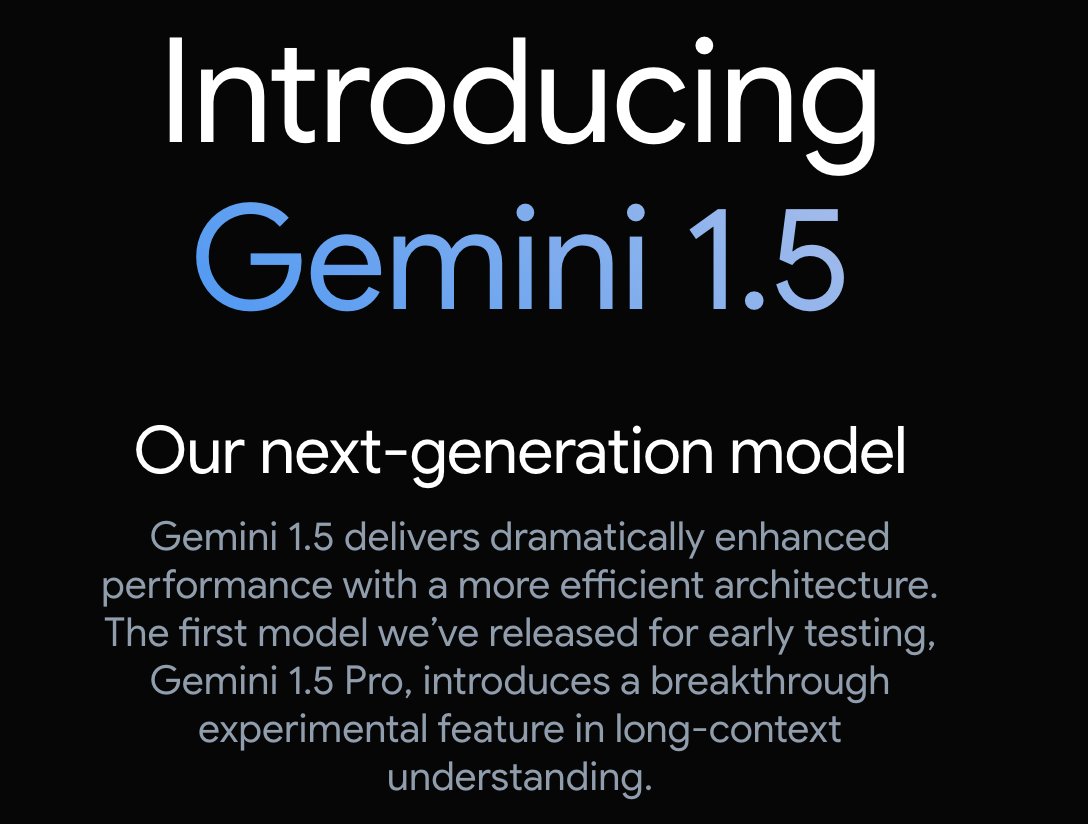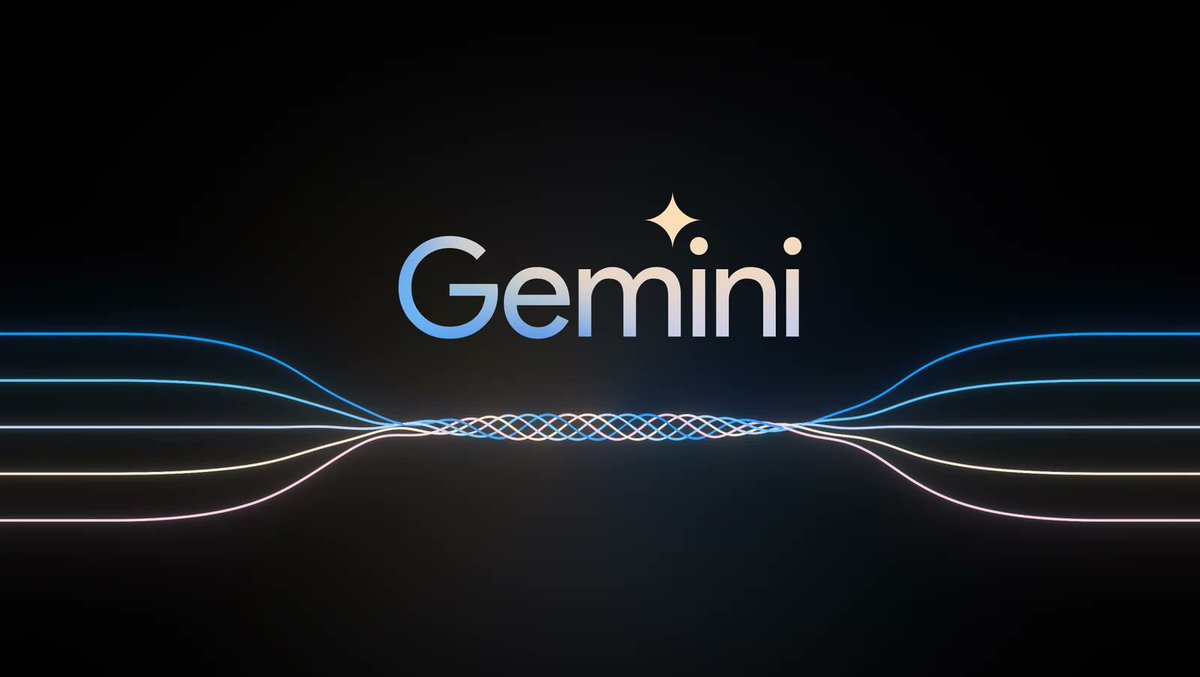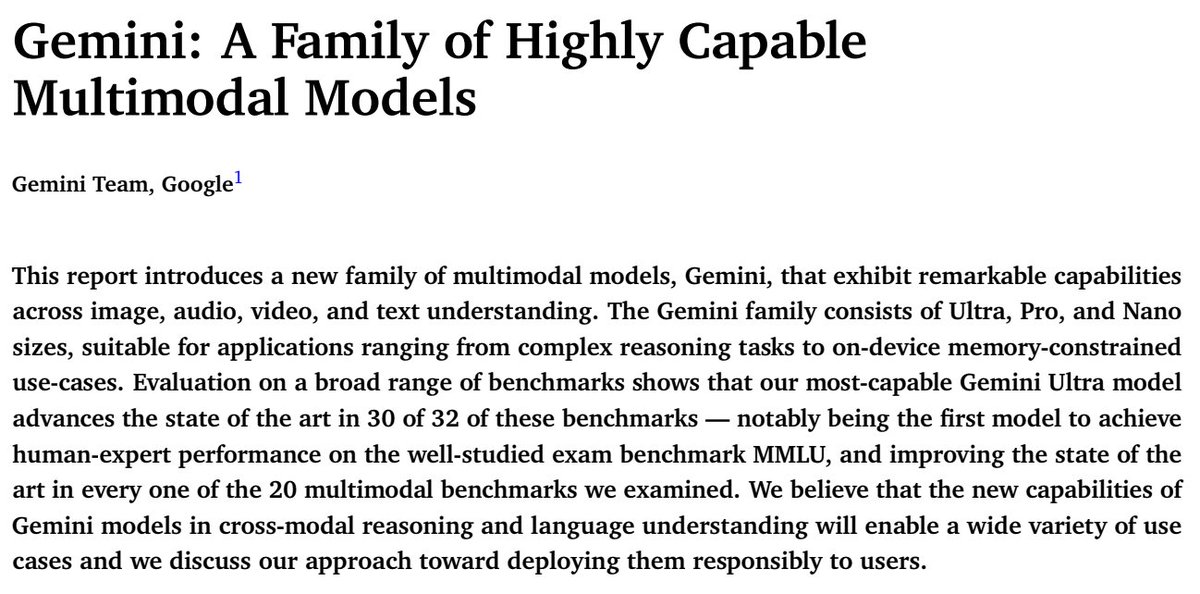How to get URL link on X (Twitter) App


 Gemini 2.5 Pro is unlocking really exciting use cases at the intersection of coding and math.
Gemini 2.5 Pro is unlocking really exciting use cases at the intersection of coding and math.
 We’re introducing 1M long context to this experimental update, enabling deeper analysis of long-form texts—like multiple research papers 📝 📝 📝 or extensive datasets 🗄.
We’re introducing 1M long context to this experimental update, enabling deeper analysis of long-form texts—like multiple research papers 📝 📝 📝 or extensive datasets 🗄.
 The Gemma-7B model exceeds the performance of the widely used Llama-2 7B and 13B models on 8 of 8 benchmarks covering general language understanding, reasoning, math, and coding.
The Gemma-7B model exceeds the performance of the widely used Llama-2 7B and 13B models on 8 of 8 benchmarks covering general language understanding, reasoning, math, and coding. 

 Needle in a Haystack Tests Out to 10M Tokens
Needle in a Haystack Tests Out to 10M Tokens


 The multimodal and reasoning capabilities of Gemini are quite strong. The benchmark results, which I’ll discuss in a moment are nice, but I’m most excited by demonstrations of what it can do.
The multimodal and reasoning capabilities of Gemini are quite strong. The benchmark results, which I’ll discuss in a moment are nice, but I’m most excited by demonstrations of what it can do.

 As our search traffic grew, we were desperately trying to avoid melting every Tuesday around noon (peak traffic for the week), while simultaneously improving the service. Making the index bigger (30M->70M->200M->500M->1B pages and beyond in a short span), ...
As our search traffic grew, we were desperately trying to avoid melting every Tuesday around noon (peak traffic for the week), while simultaneously improving the service. Making the index bigger (30M->70M->200M->500M->1B pages and beyond in a short span), ...

 A huge thanks to all of the @GoogleResearch community whose great work is represented in this post as well as the subsequent posts in the series. 🙏
A huge thanks to all of the @GoogleResearch community whose great work is represented in this post as well as the subsequent posts in the series. 🙏

 You can then ask novel questions in Bengali, and get surprisingly good answers on both English and Bengali:
You can then ask novel questions in Bengali, and get surprisingly good answers on both English and Bengali: 

https://twitter.com/nxthompson/status/1236431830242508800When I worked at @WHO, I was part of the Global Programme on AIDS (now @UNAIDS), created to help the world tackle the HIV/AIDS pandemic. The staff there were dedicated doctors and scientists intensely focused on helping address that crisis.
https://twitter.com/sehurlburt/status/1040778111057444866I'd like to draw attention to some of the retweets and replies that indicate how widespread an issue this is. Here's one, where @jeggers relates her experience (expand the thread).
https://twitter.com/JeffDean/status/1041032193882169345?s=19
